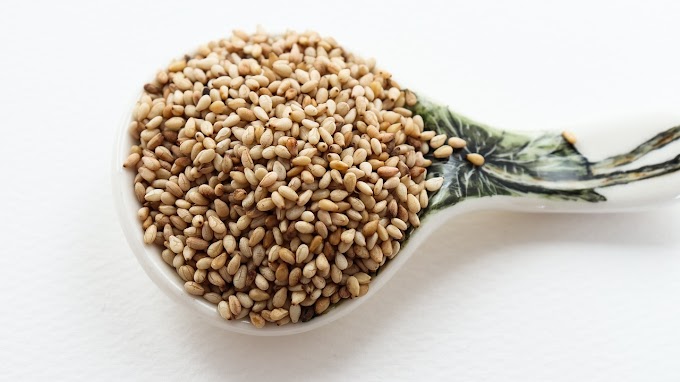Introduction
Before delving into the approaches to preserve brain health, let's take a moment to marvel at the extraordinary complexity of the human brain. Responsible for every facet of our existence, from thoughts and emotions to movement and respiration, the brain plays a pivotal role in determining our overall quality of life. Thus, ensuring its optimal functioning becomes imperative as we age.Exercising Your Brain
Mental Stimulation: Just as physical exercise maintains bodily fitness, mental stimulation is crucial for keeping the brain sharp. Engage in activities that challenge your intellect, such as solving puzzles, tackling crosswords, playing Sudoku, or embracing new endeavors like learning a new language or musical instrument.Cultivate Curiosity: Develop a curious mindset. Embrace new experiences, ideas, and knowledge. Reading books, attending lectures, or exploring new hobbies can contribute to keeping the brain active and engaged.
Healthy Lifestyle Habits
Adopt a Brain-Boosting Diet: A well-balanced diet rich in antioxidants, omega-3 fatty acids, and a variety of fruits and vegetables supports brain health. These nutrients help reduce inflammation and provide the essential components for optimal brain function.Regular Exercise: Physical activity benefits not only the body but also the brain. Aim for at least 150 minutes of moderate aerobic exercise per week. Activities like walking, jogging, swimming, or dancing enhance blood flow to the brain, promoting cognitive function.
Quality Sleep: Prioritize a good night's sleep. Rest is crucial for memory consolidation and cognitive processing. Aim for 7-9 hours of restful sleep each night.
Stress Management: Chronic stress can negatively impact the brain. Practice relaxation techniques such as meditation, deep breathing, or yoga to effectively manage stress
Nurturing Social ConnectionsMaintain Social Connections: Robust social relationships aid in preventing cognitive decline. Spend time with friends and family, participate in group activities, or join clubs and social organizations to stay socially active.
Protecting Your BrainUse Protective Gear: Minimize the risk of head injuries by wearing helmets during activities like biking or engaging in contact sports. Always use seatbelts in vehicles to safeguard against potential head injuries.
Limiting Alcohol Intake and Avoiding SmokingModeration is Key: If alcohol consumption is a choice, do so in moderation. Excessive alcohol intake can harm brain cells. Additionally, refrain from smoking, a significant risk factor for cognitive decline.
Regular Health CheckupsMonitor Your Health: Routine checkups with healthcare providers aid in identifying and managing conditions that can impact brain health, such as high blood pressure, diabetes, or high cholesterol.

Delving deeper into the multifaceted nature of brain health, it's crucial to acknowledge the dynamic interplay between physical and mental well-being. Recognizing the holistic connection between body and mind allows us to implement a comprehensive approach to aging gracefully while maintaining cognitive prowess.
Cognitive Training Programs: Consider engaging in cognitive training programs designed to enhance specific mental functions. These programs, often available through apps or specialized courses, target memory, attention, and problem-solving skills, providing structured exercises to keep your brain agile.
Mindfulness Practices: Integrate mindfulness practices into your routine. Mindfulness meditation, in particular, has been associated with numerous cognitive benefits, including improved focus, stress reduction, and even changes in brain structure that support overall mental well-being.
Brain-Boosting Supplements: Explore the potential benefits of supplements known for supporting brain health. Omega-3 fatty acids, vitamin B complex, and antioxidants like vitamins E and C are often touted for their positive impact on cognitive function. Consult with a healthcare professional before incorporating supplements into your regimen.
Continued Learning: Lifelong learning is a powerful tool for maintaining cognitive vitality. Enroll in classes, attend workshops, or pursue further education in areas that captivate your interest. Stimulating your intellect with new knowledge fosters neuroplasticity, the brain's ability to adapt and reorganize itself.
Expressive Arts: Embrace the expressive arts as a means of nurturing creativity and cognitive flexibility. Whether it's painting, writing, or playing a musical instrument, these activities engage different parts of the brain, fostering neural connections and promoting mental resilience.
Volunteer Work: Engaging in volunteer activities not only contributes to a sense of purpose but also promotes social interaction and cognitive stimulation. Volunteering exposes you to new challenges and experiences, encouraging adaptability and continual learning.
Travel and Exploration: Broaden your horizons through travel and exploration. Experiencing new cultures, environments, and cuisines stimulates your senses and challenges your cognitive abilities, enhancing adaptability and cultural awareness.
Multisensory Experiences: Incorporate multisensory experiences into your daily life. Engage in activities that involve touch, taste, smell, sight, and hearing simultaneously. This sensory-rich approach keeps your brain actively processing information, contributing to its overall fitness.
Brain-Healthy Hobbies: Explore hobbies that offer both enjoyment and cognitive benefits. Activities such as gardening, playing strategy games, or engaging in creative pursuits not only provide pleasure but also stimulate various regions of the brain, contributing to its overall resilience.
Professional Guidance: Consider seeking guidance from professionals who specialize in cognitive health. Neuropsychologists, cognitive therapists, or gerontologists can offer personalized strategies and interventions to address specific cognitive concerns and promote overall well-being.
In conclusion, the journey toward maintaining a sharp and vibrant mind is enriched by a diverse array of practices and experiences. Embracing a holistic approach that combines cognitive exercises, lifestyle habits, and enriching activities fosters not only cognitive resilience but also an enhanced quality of life. By continually adapting and challenging your brain, you can savor the richness of each moment and approach aging as a journey of ongoing discovery.
FAQ's
Q1: Can cognitive decline be entirely prevented as we age?A1: While complete prevention may be challenging, adopting a proactive approach to brain health through lifestyle habits, mental stimulation, and overall well-being can significantly reduce the risk of cognitive decline and support cognitive resilience.
Q2: How often should I engage in mental stimulation activities?
Q2: How often should I engage in mental stimulation activities?
A2: Aim for regular mental stimulation activities. It's beneficial to incorporate a variety of challenges into your routine, such as puzzles, crosswords, learning new skills, or exploring intellectually stimulating hobbies. Consistency is key.
Q3: Are there specific foods that can enhance brain health?
Q3: Are there specific foods that can enhance brain health?
A3: Yes, a diet rich in antioxidants, omega-3 fatty acids, and a variety of fruits and vegetables has been associated with improved brain health. Foods like fatty fish, nuts, berries, and leafy greens are particularly beneficial.
Q4: Is there an age limit for starting new cognitive activities?
Q4: Is there an age limit for starting new cognitive activities?
A4: No, it's never too late to start engaging in cognitive activities. Neuroplasticity, the brain's ability to adapt, remains present throughout life. Initiating new activities or learning new skills at any age can contribute to cognitive vitality.
Q5: How much physical exercise is recommended for brain health? A5: Aim for at least 150 minutes of moderate aerobic exercise per week. Activities like walking, jogging, swimming, or dancing not only benefit your overall health but also enhance blood flow to the brain, supporting cognitive function.
Q6: Can social connections truly impact cognitive health?
Q5: How much physical exercise is recommended for brain health? A5: Aim for at least 150 minutes of moderate aerobic exercise per week. Activities like walking, jogging, swimming, or dancing not only benefit your overall health but also enhance blood flow to the brain, supporting cognitive function.
Q6: Can social connections truly impact cognitive health?
A6: Yes, maintaining strong social connections has been linked to a lower risk of cognitive decline. Social engagement stimulates the brain, promotes emotional well-being, and provides a support system that contributes to overall mental health.
Q7: What role does sleep play in brain health?
Q7: What role does sleep play in brain health?
A7: Quality sleep is crucial for memory consolidation and cognitive function. Aim for 7-9 hours of restful sleep each night to support optimal brain health.
Q8: How can I manage stress to protect my brain?
Q8: How can I manage stress to protect my brain?
A8: Practicing stress management techniques such as meditation, deep breathing, or yoga can effectively reduce stress levels, promoting overall brain health. Chronic stress has been associated with negative impacts on cognitive function.
Q9: Are there specific signs of cognitive decline that I should be aware of?
Q9: Are there specific signs of cognitive decline that I should be aware of?
A9: Signs of cognitive decline may include forgetfulness, difficulty concentrating, and challenges in problem-solving. However, these can also be related to various factors. Consult with a healthcare professional if you have concerns about cognitive changes.
Q10: Is there a recommended age to start considering brain health practices?
Q10: Is there a recommended age to start considering brain health practices?
A10: It's never too early or too late to prioritize brain health. Adopting healthy lifestyle habits and engaging in cognitive activities can benefit individuals of all ages, contributing to a lifetime of cognitive well-being.







